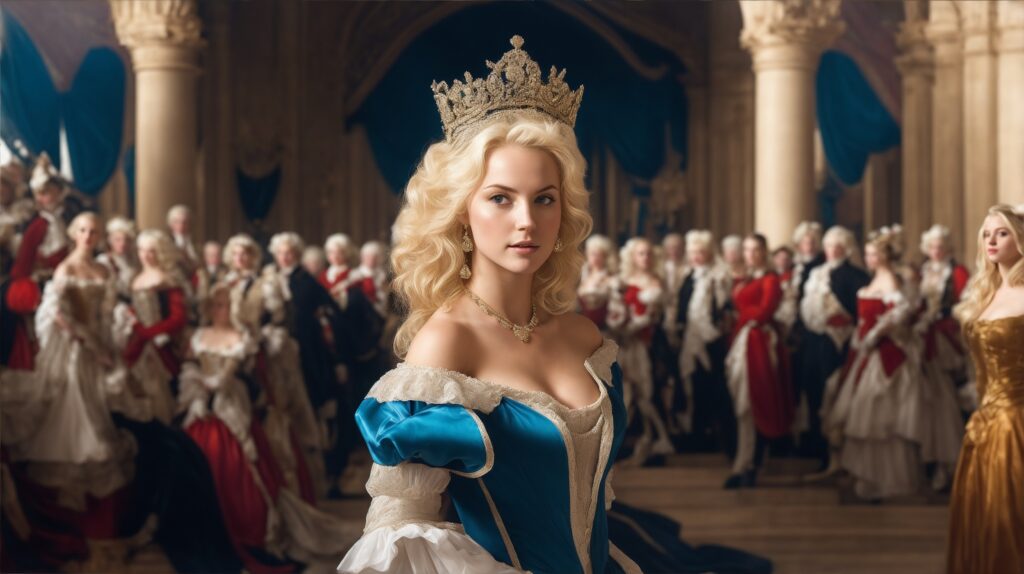Analyze the role of Belinda as the central character in The Rape of the Lock. How does her character embody the values and concerns of the society Pope is satirizing?

The Role of Belinda: A Satirical Reflection of Societal Values in “The Rape of the Lock”
In Alexander Pope‘s satirical poem “The Rape of the Lock,” the character of Belinda occupies a central role that goes beyond her physical presence. She serves as a microcosm of the aristocratic society Pope critiques, embodying its values, concerns, and superficial preoccupations. As the focus of the poem’s mock-heroic narrative, Belinda’s character serves as a vehicle through which Pope exposes the vanity, materialism, and societal obsessions of the elite. Through her actions, reactions, and interactions, Belinda becomes a reflection of the society’s values, inviting readers to both empathize with and critically examine the aristocracy’s shallow priorities.
Belinda as a Symbol of Vanity:
Belinda’s preoccupation with her physical appearance and the loss of her lock of hair encapsulates the aristocracy’s obsession with vanity. The poem opens with an elaborate description of Belinda’s dressing routine, which emphasizes her meticulous efforts to enhance her beauty. The line “Each silver curl, where shorter curls are placed” (Canto I, line 4) highlights her attention to detail. Belinda’s distress over the stolen lock of hair reflects the society’s exaggerated response to perceived slights against their image. Her mirror becomes a symbol of self-obsession and the societal tendency to prioritize external appearances over substantive matters.
Emblem of Aristocratic Frivolity:
Belinda’s reactions to her misfortune align with the frivolous concerns of the aristocracy. Her initial despair and melodramatic response to the missing lock of hair underscore the exaggerated seriousness with which the elite treat trivial matters. The invocation of the sylphs as protectors of her beauty reflects the superficial reliance on supernatural intervention to maintain her image. Belinda’s decision to participate in the card game despite her loss reinforces the society’s tendency to prioritize social engagements over genuine emotions.
The Trivialization of Romance:
Belinda’s romantic entanglements with the Baron and his subsequent theft of her lock of hair highlight the trivialization of romance within the aristocratic society. The poem presents a lighthearted and exaggerated portrayal of romantic intrigue, suggesting that the society’s affairs are more focused on games and social rituals than on genuine emotions. The language of romantic conquest, where the lock becomes a “trophy” (Canto III, line 154), emphasizes the cavalier attitude toward relationships and the commodification of human interactions.
The Battle of the Sexes and Gender Roles:
Belinda’s interactions with the Baron reflect the gender dynamics and power struggles of the aristocratic society. She initially perceives herself as the object of the Baron’s desire and falls into his seductive trap. Her realization of the theft of her lock of hair symbolizes the manipulation and power play that characterize relationships within this society. The poem’s humor is amplified by the portrayal of a seemingly epic battle between Belinda and the Baron’s supporters over the stolen lock. This satirical depiction underscores the society’s trivialization of conflicts and their tendency to transform even minor disputes into grand confrontations.
The Paradox of Belinda’s Agency:
Belinda’s character encapsulates the paradox of agency and constraint within the society. While she possesses agency as an aristocratic woman, her choices and actions are often confined to the realm of appearance and social norms. Her reaction to the loss of her lock and her engagement in the battle underscore the constraints placed on her autonomy. Belinda’s “self-defense” reveals the society’s emphasis on image and reputation, even in moments of personal vulnerability.
The Role of Spectacle and Public Perception:
Belinda’s actions in the poem highlight the role of spectacle and public perception in the aristocratic society. Her public display of emotions and reactions emphasizes the societal expectation to perform and project a certain image. This aligns with the larger theme of the poem, where the aristocracy’s concerns are often performative, with public perception superseding genuine feelings.
The Loss of the Lock as a Metaphor:
The loss of Belinda’s lock of hair serves as a metaphor for the larger losses and trivialities that consume the aristocratic society. The society’s focus on image, reputation, and material possessions results in an emphasis on surface-level concerns. The lock’s theft reflects the society’s inability to distinguish between genuine loss and mere inconvenience, highlighting the discrepancy between their inflated reactions and the actual significance of events.
A Reflection of Materialism:
Belinda’s engagement in the card game further highlights the society’s materialism and preoccupation with social status. The focus on material goods, symbolized by the coffee spill and the subsequent drama, underscores the society’s fixation on possessions over emotional connections. The absurdity of the reactions to these material losses satirizes the societal emphasis on material accumulation and consumption.
Belinda’s Transformation and Agency:
Belinda’s transformation from distress to empowerment by the end of the poem reflects a limited form of agency within the societal constraints. Her decision to participate in the game and her ultimate ability to recover the lock symbolize a temporary reclamation of control. However, this empowerment remains within the confines of the superficial concerns of the aristocratic world. Her final acceptance of the loss, marked by her “unresisting” acceptance of the fate of the lock, reflects the society’s tendency to resign themselves to the whims of societal norms.
A Critique of Societal Values:
Overall, Belinda’s character embodies the values, concerns, and limitations of the aristocratic society that Pope satirizes. Through her actions, reactions, and interactions, Pope paints a portrait of a society consumed by appearances, vanity, and trivialities. By placing Belinda at the center of the poem’s narrative, Pope invites readers to both sympathize with and critically examine the values of the aristocracy. Belinda’s character becomes a mirror reflecting the shallow priorities of the society she represents, emphasizing the disconnect between their concerns and the actual significance of their actions.
*****
Read More:
More Questions and Answers from The Rape of the Lock by Alexander Pope




